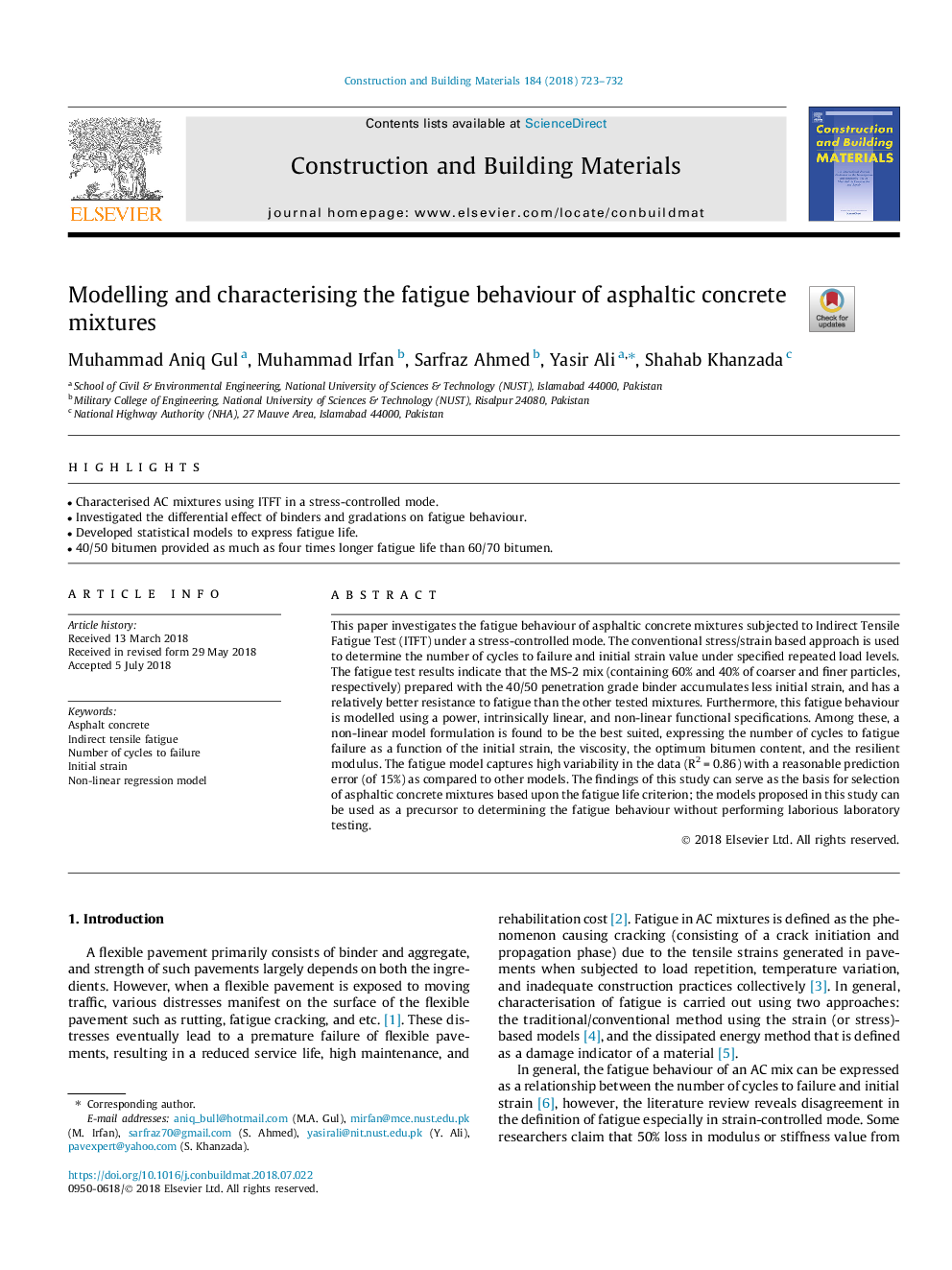| Article ID | Journal | Published Year | Pages | File Type |
|---|---|---|---|---|
| 6712265 | Construction and Building Materials | 2018 | 10 Pages |
Abstract
This paper investigates the fatigue behaviour of asphaltic concrete mixtures subjected to Indirect Tensile Fatigue Test (ITFT) under a stress-controlled mode. The conventional stress/strain based approach is used to determine the number of cycles to failure and initial strain value under specified repeated load levels. The fatigue test results indicate that the MS-2 mix (containing 60% and 40% of coarser and finer particles, respectively) prepared with the 40/50 penetration grade binder accumulates less initial strain, and has a relatively better resistance to fatigue than the other tested mixtures. Furthermore, this fatigue behaviour is modelled using a power, intrinsically linear, and non-linear functional specifications. Among these, a non-linear model formulation is found to be the best suited, expressing the number of cycles to fatigue failure as a function of the initial strain, the viscosity, the optimum bitumen content, and the resilient modulus. The fatigue model captures high variability in the data (R2â¯=â¯0.86) with a reasonable prediction error (of 15%) as compared to other models. The findings of this study can serve as the basis for selection of asphaltic concrete mixtures based upon the fatigue life criterion; the models proposed in this study can be used as a precursor to determining the fatigue behaviour without performing laborious laboratory testing.
Related Topics
Physical Sciences and Engineering
Engineering
Civil and Structural Engineering
Authors
Muhammad Aniq Gul, Muhammad Irfan, Sarfraz Ahmed, Yasir Ali, Shahab Khanzada,
